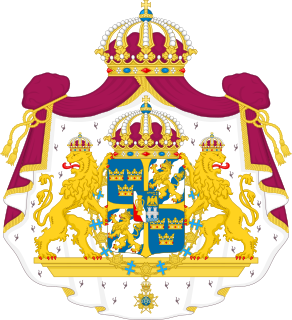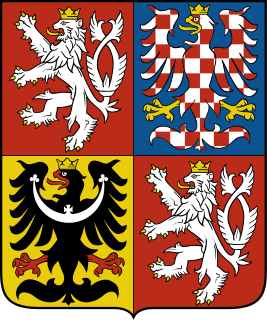Related Research Articles
Freedom of movement, mobility rights, or the right to travel is a human rights concept encompassing the right of individuals to travel from place to place within the territory of a country, and to leave the country and return to it. The right includes not only visiting places, but changing the place where the individual resides or works.

Permanent residency is a person's legal resident status in a country or territory of which such person is not a citizen but where they have the right to reside on a permanent basis. This is usually for a permanent period; a person with such legal status is known as a permanent resident. In the United States, such a person is referred to as a green card holder but more formally as a Lawful Permanent Resident (LPR).

Citizenship of the European Union is afforded to all citizens of member states of the European Union (EU). It was formally created with the adoption of the 1992 Maastricht Treaty, at the same time as the creation of the EU. EU citizenship is additional to, and does not replace, national citizenship. It affords EU citizens with rights, freedoms, and legal protections available under EU law.

The European Single Market, Internal Market or Common Market is a single market comprising the 27 member states of the European Union (EU) as well as – with certain exceptions – Iceland, Liechtenstein, and Norway through the Agreement on the European Economic Area, and Switzerland through bilateral treaties. The single market seeks to guarantee the free movement of goods, capital, services, and people, known collectively as the "four freedoms".
The right of abode is an individual's freedom from immigration control in a particular country. A person who has the right of abode in a country does not need permission from the government to enter the country and can live and work there without restriction, and is immune from removal and deportation.

German nationality law details the conditions by which an individual holds German nationality. The primary law governing these requirements is the Nationality Act, which came into force on 22 July 1913. All German nationals are citizens of the European Union (EU).

Swedish nationality law determines entitlement to Swedish citizenship. Citizenship of Sweden is based primarily on the principle of jus sanguinis. In other words, citizenship is conferred primarily by birth to a Swedish parent, irrespective of place of birth.

Portuguese nationality law refers to the laws of Portugal concerning nationality. Article 4 of the Fundamental Principles of the Constitution of Portugal refers to Portuguese nationality and establishes that a separate law regulates how it is acquired and lost. Portuguese nationality is generally acquired on the principle of jus sanguinis (descent). In other words, nationality is conferred primarily by birth to a Portuguese parent, irrespective of place of birth.
The freedom of movement for workers is a policy chapter of the acquis communautaire of the European Union. The free movement of workers means that nationals of any member state of the European Union can take up an employment in another member state on the same conditions as the nationals of that particular member state. In particular, no discrimination based on nationality is allowed. It is part of the free movement of persons and one of the four economic freedoms: free movement of goods, services, labour and capital. Article 45 TFEU states that:
- Freedom of movement for workers shall be secured within the Community.
- Such freedom of movement shall entail the abolition of any discrimination based on nationality between workers of the Member States as regards employment, remuneration and other conditions of work and employment.
- It shall entail the right, subject to limitations justified on grounds of public policy, public security or public health:
- The provisions of this article shall not apply to employment in the public service.

The citizenship law of the Czech Republic is based on the principles of jus sanguinis or "right by blood". In other words, descent from a Czech parent is the primary method of acquiring Czech citizenship. Birth on Czech territory without a Czech parent is in itself insufficient for the conferral of Czech citizenship. Every Czech citizen is also a citizen of the European Union. The law came into effect on 1 January 1993, the date of the dissolution of Czechoslovakia, and has been amended in 1993, 1995, 1996, 1999, 2002, 2003, and 2005. Since 1 January 2014, multiple citizenship under Czech law is allowed.

Slovenian nationality law is based primarily on the principles of Jus sanguinis, in that descent from a Slovenian parent is the primary basis for acquisition of Slovenian citizenship. However, although children born to foreign parents in Slovenia do not acquire Slovenian citizenship on the basis of birthplace, place of birth is relevant for determining whether the child of Slovenian parents acquires citizenship.

Estonian citizenship – based primarily on the principle of jus sanguinis – is governed by a law promulgated on 19 January 1995 by the Riigikogu which took effect on 1 April 1995. The Police and Border Guard Board is responsible for processing applications and enquiries concerning Estonian citizenship.

Bulgarian nationality law is governed by the Constitution of Bulgaria of 1991 and the citizenship law of 1999.

Danish nationality law is governed by the Constitutional Act the Realm of Denmark and the Consolidated Act of Danish Nationality . Danish nationality can be acquired in one of the following ways:
Metock v Minister for Justice, Equality and Law Reform (2008) C-127/08 is an EU law case, significant in Ireland and Denmark, on the Citizens Rights Directive and family unification rules for migrant citizens. Citizenship of the European Union was established by Article 20 of the Treaty on the functioning of the European Union (TFEU) and the Citizenship Directive 2004/38 elaborates the right of Union citizens and their family members to move and reside freely in the territory of a member state, consolidating previous Directives dealing with the right to move and reside within the European Community (EC).

Georgian nationality law is the law governing the acquisition, transmission and loss of Georgian citizenship.

Roman Angonese v Cassa di Risparmio di Bolzano S.p.A. (2000) C-281/98 is an EU law case, concerning the free movement of workers in the European Union.
Baumbast and R v Secretary of State for the Home Department (2002) C-413/99 is an EU law case, concerning the free movement of citizens in the European Union.
Coman and Others v Inspectoratul General pentru Imigrări and Ministerul Afacerilor Interne is a 2018 case of the European Court of Justice (ECJ) that affirmed residency rights to same-sex couples in EU countries that do not recognise same-sex unions, if at least one partner is an EU citizen and if the marriage was legally performed in an EU member state.

The Immigration Regulations 2016, or EEA Regulations 2016 for short, constituted the law that implemented the right of free movement of European Economic Area (EEA) nationals and their family members in the United Kingdom. The regulations were repealed by the Immigration and Social Security Co-ordination Act 2020 on 31 December 2020, at the end of the transition period.